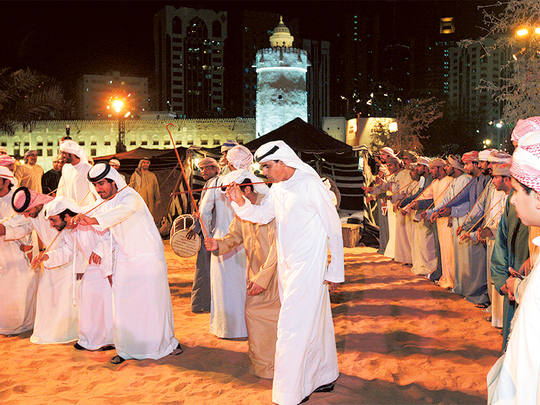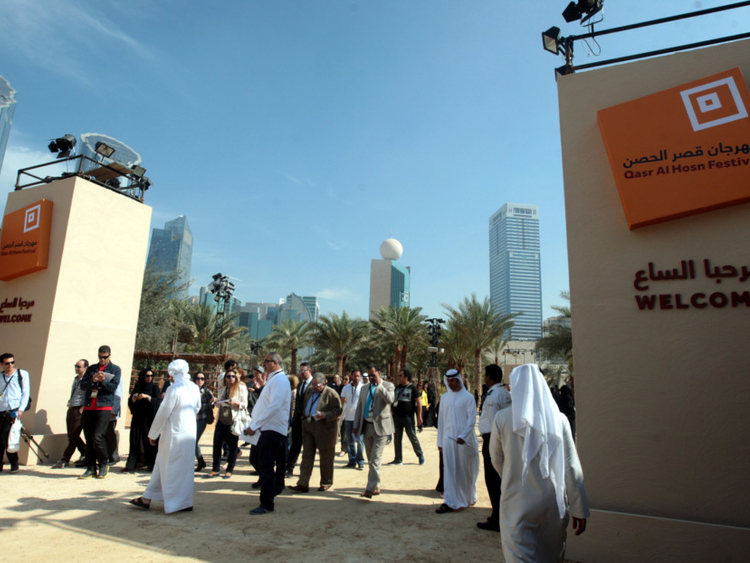
Abu Dhabi: Citizens, long-term residents and newcomers to the capital have all been a part the Qasr Al Hosn Festival experience during its previous editions with the event having played a vital role in many of their lives.
The festival’s arrival is ‘better late than never’, said the Saddiq Fath Al Khaja, who had worked for eight years with Shaikh Shakbut Bin Sultan (1928-1966) and the late Shaikh Zayed Bin Sultan Al Nahyan (1966-2004).
“At least now, the younger generation can finally recognise the fort is the symbol of Abu Dhabi and is the place where a number of the capital’s leaders resided,” he said.
Ebrahim Mohammad Abu Jash, an Emirati Arabic teacher and father of four, said he has enjoyed the festival since its inauguration in 2013. “These sort of events are crucial to remind our children of how hard our ancestors worked to get this great nation where it is today in terms of development and advancement. It connects generations and you can feel the spirit of our forefathers within the walls of the festival,” he said.
“Smiles were on the faces of all those who celebrated the opening of the festival this year and I plan on taking my children today. It is so wonderful to see them eager to go and learn about their own culture instead of making it a routine visit,” Abu Jash added.
Newcomer Tala Saifi who had lived in Canada and Jordan before coming to the UAE, said her visit to the festival had an immense influence on how well she was able to adapt to the new city.
“I had come to the capital after long years spent in the West and was not sure what to expect. However, all my apprehensions faded away as soon as I went to the festival. It was really fun and enjoyable and there were many activities explaining the history of the UAE through tours that allowed visitors to see and touch the fort.
“I especially enjoyed the Bedouin arts and crafts workshop, coffee, camel rides and the Emirati food,” she added.
The festival is currently in its third edition and will run until February 21. Documentaries, poetry recitals, traditional handicrafts and a range of shows from local artists will engage visitors and expand their knowledge on the iconic structure.








